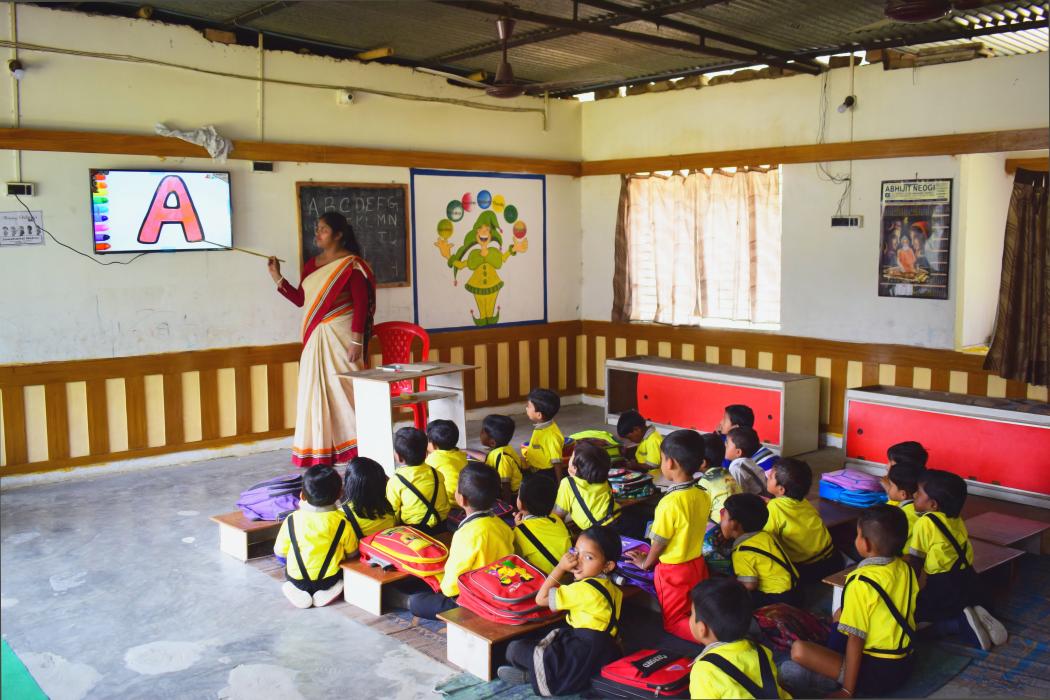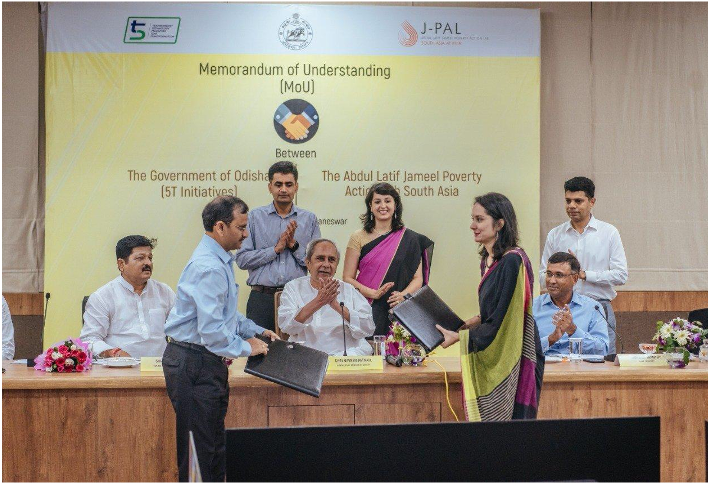
What we do
ASPIRE pursues an “evidence-to-action” approach to identify the most pressing policy challenges faced by governments, innovate and test solutions to these challenges, and support the scale-up of the most effective solutions.
This approach builds on J-PAL South Asia’s 15-year long experience of working collaboratively with governments in India by forging long-term institutional partnerships to address development challenges through a 4-step engagement process:
|
Diagnostic analysis, data use cases, and data capabilities: Undertake field research, stakeholder interactions and analysis of existing government datasets to identify and characterize specific policy challenges faced by government departments and agencies. |
|
|
Design and test innovative solutions collaboratively: Partner with governments and J-PAL collaborators and professors to co-design and pilot test innovative solutions to tackle identified policy challenges. |
|
|
Scale successful innovations and data systems: Facilitate the scale up of effective programs that are backed by strong evidence through collaborations between government departments and partners NGOs, capacity building, and process monitoring activities. |
|
|
Inform policy through evidence: Disseminate evidence from research studies and engage government departments and agencies to continuously forge new pathways to policy change. |
|
Outcomes
ASPIRE’s in-depth stakeholder engagement process and research activities are designed to deliver multiple outcomes:
- Evidence-informed innovations that improve performance of existing government policies and programs
- Facilitate the scale up of effective programs by governments
- Increased access and improved usability of data collected by government departments and agencies
- Allocation of additional resources by governments towards policy-relevant research, including Randomized Control Trials (RCTs)
- Strengthened culture of evidence-use by governments
ASPIRE in Odisha

ASPIRE’s portfolio of engagements with the state government of Odisha exemplifies our “evidence-to-action” approach. Based on in-depth conversations with officials at Odisha state departments to identify their policy priorities and challenges, ASPIRE has initiated several research and knowledge dissemination activities that aim to maximize the impact of Odisha’s anti-poverty programs across a wide range of sectors including education, gender, livelihoods, and agriculture, among others. Specific research and scale-up activities currently underway in Odisha include:
- Field research and stakeholder interactions to identify avenues for improving welfare of daily-wage construction workers, and enhancing early childhood development programs in Odisha
- Analysis and generation of actionable insights from data collected by government departments to develop policy recommendations.
- Facilitating state-wide scale up of a school-based gender sensitization program, across 23,000 government schools, and tracking implementation through process monitoring activities
- Pilot program to test solutions to improve market access for farmers through participation in farmer producer organizations (FPOs)
-
Scaling up the evidence-based Targeting the ultra-poor program, which provides a combination of carefully sequenced supports to poor women in rural communities to help them graduate out of poverty, to 10,000 ultra-poor households in Odisha.
ASPIRE’s work in Odisha builds on J-PAL SA’s existing MOU with the Odisha Government signed in October 2019.